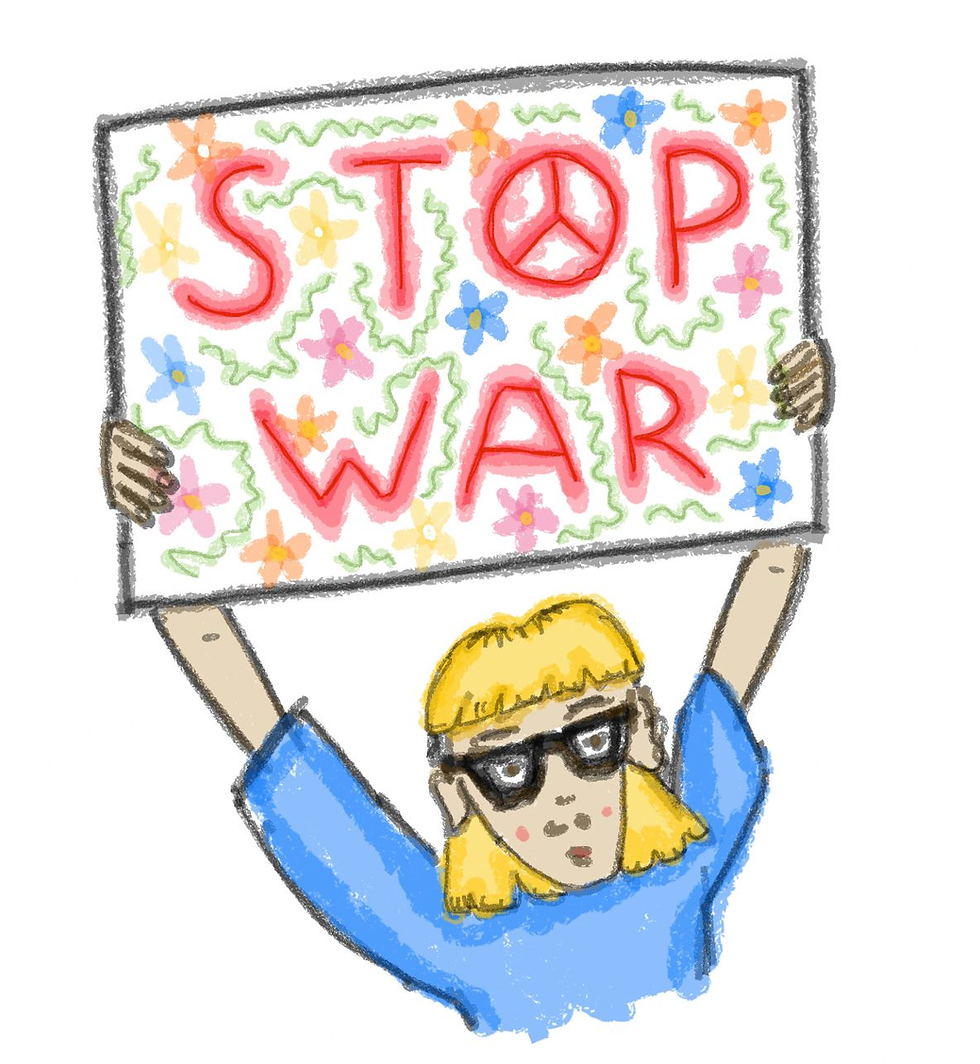Fake it ‘til you make it: rigged elections and the unseen struggle for democracy
- Ava Reid
- Jan 2, 2022
- 3 min read

Illustrations by Megan Le Brocq
Nearly a decade has passed since the Snow Revolution, a time when thousands across Russia began organising protests against Putin’s government. Their demands were few and simple, most importantly, for the government to hold free and fair elections. The protests continued for over a year from December 2011. Police violence, counter-protests from pro-Kremlin groups, and new legislation that severely limited the ability to organise and hold demonstrations slowly thawed the Snow Revolution. In the end, more than a thousand had been arrested and many were injured in police confrontation.
There hasn’t been quite the same power and energy in Russian protests since. Government limits on protests have slowly strangled the ability to voice disapproval of the Kremlin. Yet after every election following 2011, and the Snow Revolution, groups have been calling out the Putin regime for corruption, allowing fraudulent voting, and the suppression of political opposition. The 2021 elections were no different.
On social media, videos capture ballot-stuffing across Russian cities. Electronic voting, introduced in some larger cities, saw opposition leaders lose to thousands of last-minute online votes. Golos, an independent vote monitoring group labelled a ‘foreign agent’ by Putin’s government, received around 5,000 reports of possible voting violations. Evidence of voting fraud has been shared internationally, with the EU, UK, and USA – all condemning the result. These claims are not being investigated. This ‘election’ - if it can be called such - was another shining example of Putin’s corruption and authoritarianism.
Halfway across the world, more individuals claim their own election was rigged. There are still voters in the US who cling to the belief that Joe Biden couldn’t have won last year's election; they believe their election was as corrupted by the Democrats as Russia’s was by United Russia. Perhaps they believe the reaction from law enforcement was just as oppressive. After all, wasn’t their own revolution crushed beneath the iron fist of tyranny?
Note that the Republicans who stormed the Capitol were able to do so in January. Not a single shot was fired until people had entered the building. The protest - far from peaceful - was allowed to escalate. In the same month, while Navalny was on hunger strike in prison, his supporters gathered in Moscow but there was no attempt to storm the Kremlin. Nearly 670 people have been charged in the US following the riot, but there were more than 3,000 arrests in Russia on the 23rd of January alone. Piles of evidence have been put forward to the Russian voting commission regarding fraud, yet nothing has been investigated. Considering their pro-Kremlin bias, an investigation is unlikely. In contrast, the US government spent months investigating voting fraud after the election and their findings did not change the election result. The ‘corruption’ was that the investigations didn’t change to reflect what Trump and his supporters wanted.
Republicans want to believe that they too face what Russia must. Those clamouring on TV and social media about the stolen election, and the totalitarian government, cannot comprehend that their ability to do so means they are not oppressed. The president of the Svoboda Alliance in Victoria, Australia, informed me in one email that Kremlin propaganda makes use of the riots in the US to fight democracy in Russia. He told me these riots prove United Russia’s idea that “everywhere in the world, democracies have serious problems”, and “everything is so much better” for Russians in comparison. He continued: saying he doubted many people were buying this idea, yet the riots have still been used to advocate for a corrupt government. If you weren’t enraged by the pettiness of Trump supporters' frenzied and petulant reaction to the US election result, look at what an actual falsified vote means.
Russian citizens have been battling Putin’s government for a decade, with police brutality and state corruption at every single turn. The opposition leaders are barred from running; activists and journalists are branded ‘foreign agents’; critics are poisoned. This is not a battle exclusive to Russia; this is what a fraudulent election looks like. This is what the aftermath of a period of fraudulent elections and state corruption looks like. To claim the same thing is happening to Republicans is belittling to an inescapable struggle.







Comments